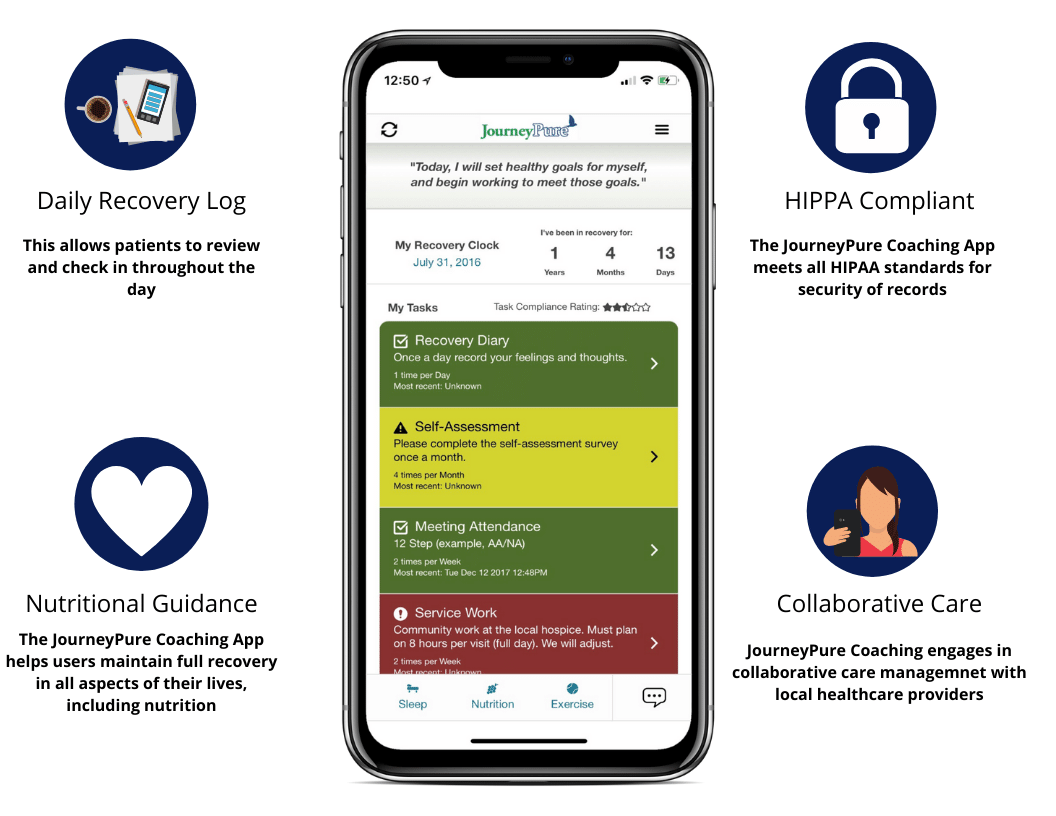The opioid epidemic in the U.S. refers to the large numbers of deaths and hospitalizations from opioids, including prescription painkillers, illicit drugs like heroin, and analogs like fentanyl.
While overdose death rates in the U.S. may have finally plateaued since their 2017 peak, the U.S. is still seeing at least 40,000 deaths by overdose each year, the vast majority of them thanks to opioids or their analogs. That comes out to more than 100 overdose deaths every day.
Aside from this alarming statistic, two more devastating consequences of the opioid epidemic include the increases in opioid misuse and related overdoses and the rising incidence of newborns experiencing withdrawal syndrome, due to opioid use and misuse during pregnancy.
And then there’s the financial cost. The cost of the opioid epidemic is estimated to have exceeded $1 trillion from 2001 to 2017 and is projected to cost an additional $500 billion by 2020, according to a study by the healthcare research nonprofit Altarum.
Since 2014, JourneyPure has led the way in fighting the opioid epidemic by providing innovative, effective addiction treatment services with an emphasis on addressing patients’ co-occurring mental health issues. Read on to see what we’re doing to meet the challenges of this nationwide crisis.
Issue 1: Lack of Access to Treatment
Since opioids are more readily available in urban centers than in rural areas, most rural communities lack access to effective addiction treatment.
A significant portion of the population—including lawmakers—are under the impression that the opioid epidemic is a problem only for those living in urban centers. However, the opioid epidemic has in recent years penetrated smaller cities, towns, suburbs, and rural areas.
As a result of actions taken under this mistaken impression, states that are considered primarily rural have seen the highest rates of death by drug overdose. According to the Centers for Disease Control, some of the highest rates of overdose deaths in 2017 took place in West Virginia, Ohio, Pennsylvania, Florida, Tennessee, and Kentucky.
In fact, the increase in drug overdose deaths had grown so dire in Kentucky (which makes up the intersection of Appalachia and the Midwest) that the Commonwealth was forced to contract with both the University of Louisville and the University of Kentucky to decrease the workloads of state-employed coroners.
A 2014 study in the National Center for Biotechnology Information’s PubMed concluded that urban areas tend to offer “a more diverse array of options for substance abuse treatment, suggesting that they may be better able to meet the diverse needs” of their communities.
The study also suggested that people in rural communities have fewer public transportation options, making it more difficult for people who need treatment to attend therapy and counseling sessions, and that specialty treatment programs—such as those tailored to pregnant women—are less readily available in rural areas.

How JourneyPure Can Help
The JourneyPure mission statement reads:
The constant aim of all JourneyPure facilities is to set the standard in addiction and mental health treatment, providing true solutions to the nationwide drug abuse epidemic by deploying systems of care to communities in need. We believe everyone should be afforded the chance to recover, no matter what their circumstances.
In carrying out this mission, JourneyPure has rapidly expanded its footprint in markets throughout the southeastern United States. While some of these locations serve urban centers like Nashville and Louisville, the vast majority of our facilities serve rural areas such as Murfreesboro, Tennessee; Elizabethtown, Kentucky; and Fort Walton, Florida.
“We realize that many people live in areas where they have no resources to get help in dealing with a drug problem, so we have staff members travel as necessary to smaller towns to evaluate those who struggle with addiction,”
said JourneyPure CEO Kevin Lee.
“The work is very rewarding, in that we are able to help hundreds more people every month have a better quality of life by stopping their drug abuse.”
Issue 2: Unnafordable Treatment Costs
Treatment for addiction is extremely expensive, leaving people of limited financial means out of luck when it comes to finding help for their opioid addiction.
When a person decides to go to rehab, it’s only natural that they worry about how they’re going to pay for it. And while it’s true that a 30- or 60-day stay at a residential treatment center isn’t cheap, it should never be a deterrent for people needing help.
As the public’s perception of substance abuse and mental health evolves, though, so have commercial insurance plans’ coverage of substance abuse and mental health disorders. While some plans may not cover 100 percent of addiction treatment services, many cover the treatment itself, leaving the policyholder to pay for his or her own travel, meals, lodging, and the like.
JourneyPure Works With You to Make Sure Costs Don’t Hold You Back from the Life You Deserve
The cost of rehab varies widely depending on the level of care needed. Residential treatment programs offer the highest level of care and are often the most expensive as a result. Outpatient treatment programs may cost less, but might not provide enough support for sustained recovery.
Still, the most expensive treatment may not necessarily be the most effective. Lots of rehab programs provide luxury “extras” that aren’t proven effective in treating a person’s substance use disorder or other mental health issues. Treatment with “evidence-based” practices and therapies is what is most important in recovery.
Nowadays, most insurance companies accept substance use disorder as a disease, one requiring professional treatment. And JourneyPure accepts many if not most commercial insurance plans, as well as Medicare and Medicaid, which enables us to help as many people as possible. We are also in-network with Tricare and VA Choice. Whether you’re fully insured or have no insurance, we will work with you to remove the barriers between you and the help you need.
Here’s how JourneyPure approaches questions of payment: after you’ve reached out and let us know a little bit about yourself and your specific needs, we then conduct a “benefits check” to see whether or not you have insurance. (This is free of charge and does not commit you to doing business with us.) Our team will work diligently with you to make sure you receive the full range of benefits to which you’re entitled.
Also, with Medicare and Medicaid coverage, outpatient Medication-Assisted Treatment is usually free to patients.
Also known as MAT, Medication-Assisted Treatment is used to relieve the symptoms of drug and alcohol withdrawal and reduce the psychological cravings that occur when a person stops abusing substances. It is a leading treatment modality for those addicted to opioids including heroin, codeine, OxyContin, and Vicodin.
As with many commercial insurances, outpatient MAT is covered when it’s delivered by an in-network provider, though some patients might have a co-pay similar to that of a doctor’s appointment.

Issue 3: Cookie CUtter Treatment Models That Don’t Meet Every Individual’s Needs
Many treatment providers push patients through a “one size fits all” model that does not meet patients’ individual needs, leaving them vulnerable to relapse.
Every person’s journey to recovery and wellness is unique to him or her. Unfortunately, a lot of treatment providers push their own care model and philosophy above their patients’ needs. This approach is inherently flawed because it ignores or underestimates individuals’ behavioral health issues that contribute to the addictive behaviors. And then there’s the issue of patients not feeling “heard,” resulting in resistance to the treatment being offered.
JourneyPure’s Custom Treatment Plans
No matter who you are, your substance use issues are highly personal. That’s where our individualized approach comes in to play.
Need marriage counseling along with your addiction treatment? JourneyPure provides that. Prefer your treatment to have a spiritual or religious dimension? JourneyPure provides that. In fact, we will do whatever it takes to help you discover the person you are outside of your addiction. That includes a willingness to coordinate with third-party care providers to help you.
JourneyPure boasts a wide array of specialty treatment programs for a wide variety of people:
- The Serenity Women’s Center in Knoxville provides specialized services to women who have experienced trauma or face a high-risk pregnancy due to substance abuse.
- Nurses in need of professional addiction treatment can benefit significantly from participating in our Healer’s Program.
- Professionals can work through the complications of their disease and get back to work as quickly as possible with our Center for Professional Excellence.
- Sheepdog, our new program at Florida Counseling Centers in Melbourne, provides individual and group therapy for retired and active duty service members, veterans, and first responders. While many rehab facilities claim they can address the unique needs of this population, Sheepdog is run by retired Marine Master Sergeant Adrian Marquez, who served as a Marine Raider, with multiple deployments in Iraq and Afghanistan.
At the same time, we ask that each patient be willing to do “the work.”
Therapists and staff at all JourneyPure facilities approach each and every case using the Enhanced Illness Management and Recovery Manual (EIMR), a step-by-step treatment approach to self-care. Patients working in the E-IMR manual learn:
– how to set meaningful recovery goals for themselves
– how to make informed decisions about their own treatment
– how to develop greater mastery over their symptoms
– how to develop skills for dealing with stress and avoiding relapse
– information about how and where to obtain needed resources
– how to track progress toward their own personal recovery
In addition to providing a comprehensive approach to self-care, the E-IMR evolves with the patient to remain vital over the long term, thus minimizing the chance of relapse. So long as the patient is willing to do the work.
Issue 4: Lack of Aftercare Planning Leading to Increased Risk of Relapse
After a 30- or 60-day stint in a residential treatment facility, many people return to their lives with little to no plan for how to maintain wellness and avoid relapse.
According to the National Institute on Drug Abuse, 40 to 60 percent of people remain clean and sober six months after treatment. This rate is similar to recurrence rates of other chronic diseases, like Type 1 diabetes and hypertension.
A number of factors increase the risk of relapse, including:
- Succumbing to triggers—thoughts, feelings, sensations, situations, or relationships that cause someone to drink or use drugs after a period of abstinence. Triggers can range from driving past a familiar bar or drug dealer’s house to a lack of sleep contributing to letting one’s guard down.
- Depression, which often co-exists with addiction. Depressive thoughts can cause people to oversleep, lose interest in hobbies, or have difficulty focusing. People experiencing depression in recovery may be tempted to use drugs to find relief.
- Physical pain is a common reason for relapse, as alcohol and drugs tend to “numb” unpleasant physical sensations. A 2016 study published in the journal Drug and Alcohol Dependence found that decreases in pain levels may lower the risk for alcohol relapse.
- People in recovery may experience long bouts of self-pity, disappointed about no longer being able to “party” with their friends. Dwelling on negative circumstances is a common gateway to using again.
- A 2011 study published in Current Drug Abuse Reviews suggested that unemployment increases the risk of relapse following treatment. The study found that risky drinking, including binge drinking, is more common among the unemployed than the employed.

Continued Care With JourneyPure
Aftercare services, such as individual therapy and 12-Step education, help treatment alumni avoid triggers that commonly lead to relapse. Many treatment centers, including JourneyPure, encourage clients to engage in aftercare services.
One of the most effective aftercare services is sober housing or sober living homes. Sober living homes are substance-free places for those in recovery. Residents of sober living homes support one another in abstaining from drug or alcohol use.
The one thing that all aftercare services have in common is access to a strong support system, one that can provide immediate support and encouragement to people experiencing challenges to their sobriety.
Through our combination of inpatient and outpatient facilities, sober housing locations, and proprietary coaching services, JourneyPure delivers a continuum of integrated, high-quality services for each patient.
One aftercare service that separates JourneyPure from so many of our competitors is our JourneyPure Coaching app. Introduced during treatment as part of a patient’s daily treatment plan, the app enables one of our JourneyPure coaches to stay in touch with assigned patients,
helping ensure adherence to that patient’s post-treatment recovery plan.
The JourneyPure Coaching app includes a slew of valuable features, including private, HIPAA-compliant real-time messaging between the patient and designated coach, a daily recovery log, nutritional guidance, and collaborative care management with local healthcare providers. It’s one of the many aftercare services we provide that contributes to our 84 percent success rate, and it’s why our motto is: You can do it. We will show you how.
Contact Us Today to Get Help
A lot of work remains when it comes to solving the opioid epidemic. However, we at JourneyPure understand that there is no silver bullet. Freeing people from the grip of opioid addiction remains a work-in-progress, one that requires understanding, adaptability, imagination, and hard work.
If you have a loved one who is in need of help with substance abuse issues or domestic violence, do not hesitate to reach out to our drug rehab. We can help you get your loved one the care that he or she needs. You are not alone.



